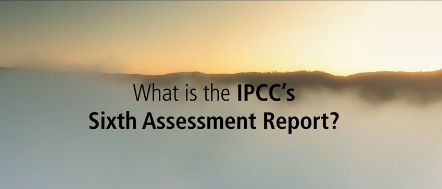Wednesday, 7 January, 7:00–8:15 a.m.
Globally, high impact hydrometeorological events such as floods, flash floods, mudslides and droughts cause more humanitarian and economic losses than all other natural hazards. A key solution to mitigating climate, weather and water catastrophes is to establish End-to-End Early warning systems (EWS) as part of sustained and durable Disaster Risk Reduction (DRR) programs. Country Donors, Finance Institutions, Hydrometeorological Organizations, such as the World Meteorological Organization (WMO), and Federal agencies, such as NOAA, have established and strengthened EWS capacity in regions where climate-extreme events have caused major disasters, such as in Central America (Hurricane Mitch 1998), and yet after each disaster these systems have fallen into disrepair. There are many technical and social/cultural lessons that should be learned from capacity building hydrometeorological projects that are not captured and used to restructure projects to improve sustainability. Instead, we keep making many of the same design, development, operation and maintenance mistakes and keep getting the same results. Recent studies (Glance and Baudoin,2014) of hydrometeorological projects reveals lessons are not learned. In fact lessons are not readily learned nor applied by many of the players responsible for and investing in building capacity of National Hydrological and Meteorological Services required to support key sectors and vulnerable communities. A “Lessons Learned” conference is planned in 2015 to address the question why the international community is not learning from history and what must be done to change effective practices. In the U.S., hydrometeorological disasters such as Katrina and Sandy have had a significant impact on the economy and building resilience to future high impact events.
How does the U.S. and its partners learn from disaster preparedness, response and recovery and are there more effective approaches and practices that will contribute to lesson learning internationally? Are there international approaches from which the US can learn ? A panel will discuss the Lessons learning processes in the US, how it can be improved and how the US could/should work in the Global theater of building resilience to the new normal of extreme and high-impact events.
For additional information, please contact Curt Barrett (curtis_barrett301@comcast.net).
American Meteorological Society, Town Hall Meeting: Lessons learned about coping with high impact hydro-meteorological events in the US: “A stepping stone panel discussion for the 2015 DRR Summit on Lessons Learned about Lessons Learned”
, Retrieved from http://annual.ametsoc.org/2015/index.cfm/programs-and-events/town-hall-meetings/town-hall-meeting-lessons-learned-about-coping-with-high-impact-hydro-meteorological-events-in-the-us-a-stepping-stone-panel-discussion-for-the-2015-drr-summit-on-lessons-learned-about-lessons-learned/


